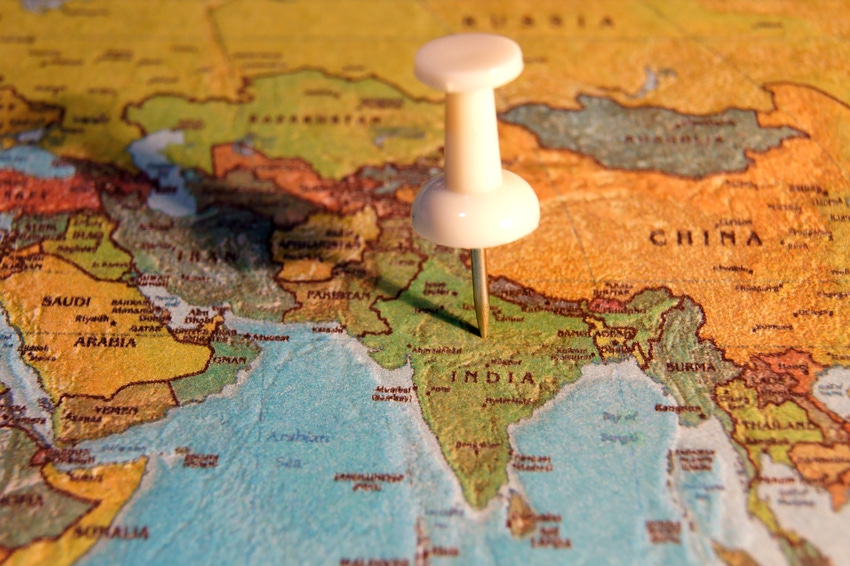Content Spotlight
Podcast: MilliporeSigma says education vital to creating unbreakable chain for sustainability
MilliporeSigma discusses the importance of people, education, and the benefits of embracing discomfort to bolster sustainability efforts.

Large-scale capacity investments and a deal with Merck & Co. will propel Aurobindo into the global biologics CDMO space, the Indian drugmaker says.
Last month, CuraTeQ – a fully owned subsidiary of Indian multinational pharma firm Aurobindo – signed a limited Letter of Intent (LOI) with pharma giant Merck & Co. (known as MSD outside North America). The agreement aims for CuraTeQ to serve the company through another subsidiary, TheraNym Biologics.
According to management, the deal will spark both Aurobindo/CuraTeQ’s biologics business and help build out its capacity with an aim to become a major mammalian cell culture-based contract development and manufacturing organization (CDMO).

DepositPhotos/valipatov
“The letter of intent that we signed with MSD allows us to create infrastructure for contract manufacturing of innovative biologics,” Satakarni Makkapati, CEO of Aurobindo Biosimilars, Vaccines and Peptide Businesses and director of Aurobindo Pharma, told shareholders on his firm’s recent Q2 fiscal year 2024 financial call. “We are continuing to negotiate the final terms with [MSD and] we hope to conclude these negotiations by March 31, 2024.”
The LOI comes a year after Aurobindo first signaled its intention to enter the biologics CDMO business, pledging INR 3,000,000,000 ($36 million) to build bioreactor capacity. A facility in Borapatla near Hyderabad, India to be run by TheraNym/CuraTeQ will house two 15,000 L bioreactors and a vial filling line integrated with an isolator in the first instance.
Makkapati suggested the agreement with Merck will drive further investment in the plant, though the firm will “provide a clearer picture four to five months from now.”
According to Makkapati, the market for originator biologics is around $300 to $350 billion, with the biologics contract manufacturing space poised to be worth between $30 billion to $40 billion by 2030.
He noted the dominance of Western CDMOs Boehringer Ingelheim, Lonza, and Patheon (Thermo Fisher) in serving this market, and then nodded to the rapid rise of Asia-based companies, namechecking WuXi Biologics, LG Life Sciences, and Samsung Biologics.
“The kind of capacities that we are installing for mammalian cell culture manufacturing are over 15 kL bioreactor scales. This is higher than the capacities that you see in India in contract manufacturing,” said Makkapati, who added the filling line was also a differentiator.
“In the contract manufacturing space, either you’ll see drug substance manufacturing capabilities in biologics or fill and finish capabilities, and it is very rare for a customer to come in and do both drug substance and the finished product in one site.”
As such, Aurobindo’s offering will be “a unique proposition,” he continued. “It is being positioned to supply the product commercially right from day one, to the collaborators or the partners. So we are positioning this to compete with the large CDMOS in Asia and outside over a period of time.”
Referred to by some as ‘The Pharmacy to the World,’ India has long been a global center of drug production. However, the industry has historically focused on small molecule active pharmaceutical ingredients (APIs) and finished dosage forms, with a robust generic focus, while large molecule production remains in its infancy.
“Look at the Indian contract manufacturing space, there is no scale in biologics,” said Makkapati. “We need an anchor industry here, right? India needs a WuXi sort-of moment to make sure that we have a contract manufacturing setup that can compete globally.”
WuXi Biologics has grown exponentially over the past decade, investing heavily in large-scale (albeit mostly single-use) bioreactor capacity first in its native China and then globally.
While Makkapati pointed again to Aurobindo’s deal with Merck and the investment in commercial capabilities, there are other India-based CDMOs likely to want to be the ‘next WuXi.’
Aragen, for example, is building a 120,000 square-foot plant in Bengaluru, Karnataka at a cost of $30 million. Meanwhile, Syngene – a CDMO subsidiary of Indian drug giant Biocon – acquired a site from Stelis Biopharma also in Bengaluru earlier this year and has laid down expansion plans.
This article was updated on 23 November to correctly attribute the quotes to CEO Dr. Satakarni Makkapati.
You May Also Like